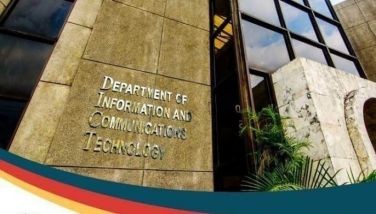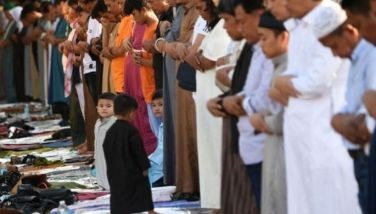Bicolandia’s Sarung Banggi: From music to film
MANILA, Philippines - Bicol composer Potenciano Gregorio who penned the famous Bicol love song, Sarung Banggi turned 133 years old last May 18 with an Albay festival, carrying the name of his composition.
But his famous love song has two birth dates: One placed at 1897 when Gregorio was just 17. But in a research made by Bicol historian, Dr. Merito Espinas, who conducted interviews with descendants of the composer, it appeared that the piece was only completed on May 10, 1910 which makes it only 103 years old.
It was premiered three months later on the same year — not in Sto. Domingo (previously named Libog) where the composer was born — but in the town fiesta of Guinobatan, Albay.
As the Espinas’ research indicated, a band arrangement of Sarung Banggi materialized in 1918 and performed by Banda de Libog and yet another version was made for a symphony orchestra in 1930.
The song has become so famous nationwide it spawned an LVN movie starring Rogelio de la Rosa and Mila del Sol and used as background music in many commercials in the ’40s and the ’50s.
Of late, the Bicol song is also the title of an award-winning indie film about aboy’s initiation into manhood after an evening with a hooker.
But a thesis worth reviving about the Bicol song was initiated by Bicol historian, Jose Barrameda, who suggested that Sarung Banggi could have been a protest song disguised as a love song.
Barrameda noted that Gregorio was born during the sunset of the Spanish colonial power (1880) and his young Filipinohood was “straddled†by the emerging American imperialism. He has strong reason to believe that Sarung Banggi was actually a “metaphorical message that speaks of a longing for national liberation.â€
He further noted that the Bicol composer was all of 30 years old when the song was completed. “How long the idea behind the metaphor had been germinating in his mind no one now can say,†he pointed out. “What is certain is that in a short time, the song caught on with the local populace and soon rapidly spread throughout the Kabicolan and later throughout the country.â€
The late historian noted that his friends never really found the song an expression of their amorous sentiments. “They just said that the song leaves them quietly disturbed or with a feeling that something was amiss.â€
He added that a cursory examination of Sarung Banggi revealed that “love†was never mentioned but strongly suggested by the over-all effect of the song.
He propped up his thesis by saying that if people were to be fair to the composer and his music, his life and works must be evaluated in terms of the times and circumstances in which he lived.
Barrameda concluded: “Using this yardstick on Potin (the composer), it is not difficult to see how he meant Sarung Banggi to be essentially a political protest song. It cannot be emphasized enough that the era in which he wrote Sarung Banggi was one of political suppression by the Americans.â€
Further analyzing the song, he explained: “The singer is awakened one night by the singing of the bird; he imagines it to have been a product of a dream; then he realizes that the birdsong is actually that of his ‘beloved.’ It might be pointed out that the bird-Philippine metaphor was actually employed for the same patriotic purposes, though not quite poetically, in Jose Corazon de Jesus’s Bayan Ko. Likewise, the collective voice of the Kabikolan in Bicol epic poem Handiong was also invested in a bird.â€
The Bicol historian concluded that Gregorio actually left his last will and testament in Sarung Banggi, a song that entered the mainstream of the country’s cultural life and actually crossed the Pacific when it was performed in the United Nations.
By coincidence, the rights of Sarung Banggi were reportedly sold to composer Constancio de Guzman who wrote the music for the immensely popular patriotic song, Bayan Ko.
Albay’s Sarung Banggi Festival honoring the composer started last May 15 and will be highlighted today with a commemorative Mass and a reunion of the Gregorio clan. “It is our way of honoring the man who put the Bicol region in the music map,†said Governor-elect Joey Salceda.
The violin version of Sarung Banggi was performed in Virac, Catanduanes in 2000 by prize-winning Romanian violinist Alexandru Tomescu with pianist Mary Anne Espina and by NAMCYA winner violinist Christian Tan last March 16 with the same pianist. The two landmark performances were greeted by deafening applause and a rousing standing ovation.
- Latest
- Trending

































